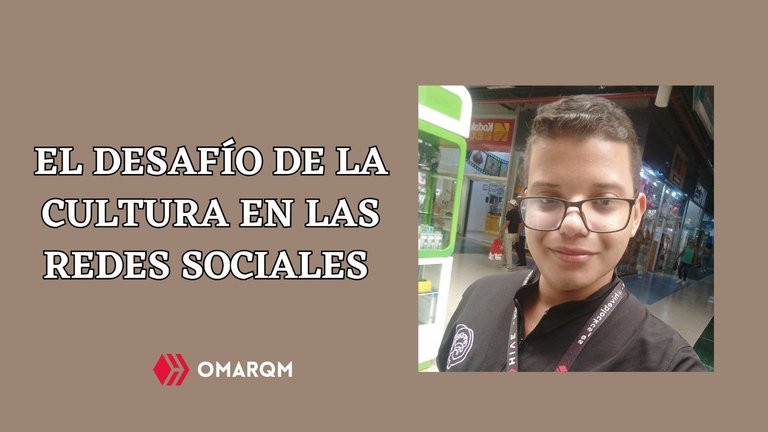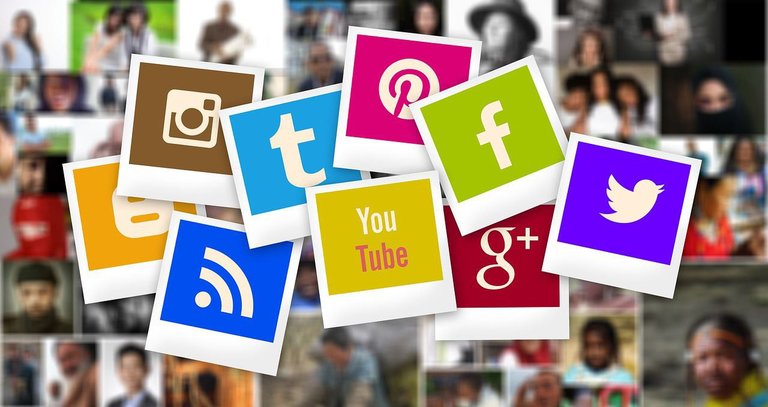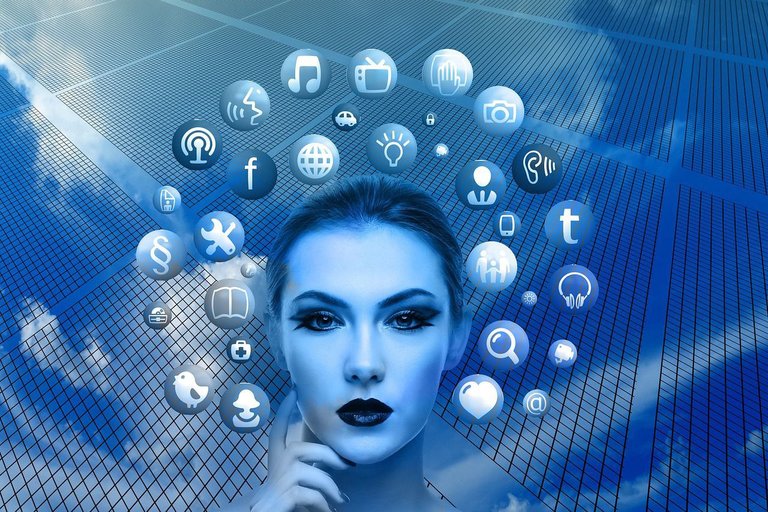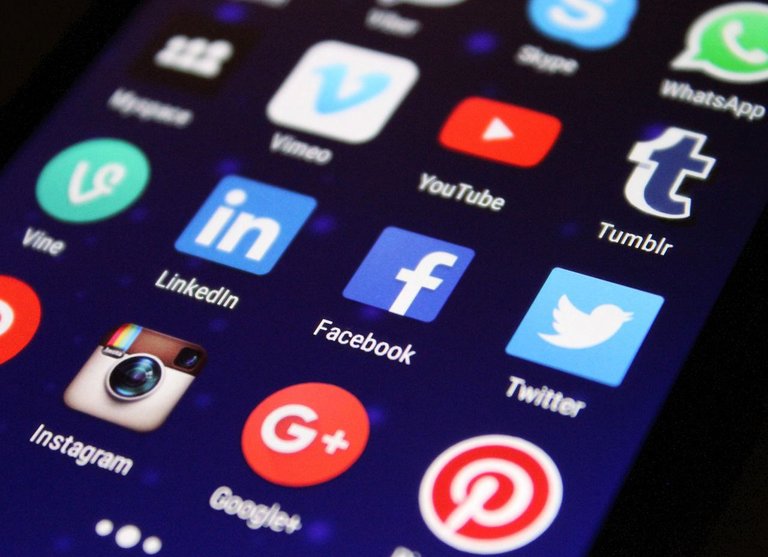English Version

I hope you are doing well, I am doing well thank God, counting the days when my vacations are over to return to the routine of internships. And you will say to me, Omar, how come? If it is already December and that means more vacation, PS yes, but when you are a university student in your last semester, that is not possible, especially when your internships are clinical plus the thesis haha.
But well, that is a temporary factor, God willing, just as I tell you this, soon I will tell you that all this was worth it, fulfilling the final goal that is already close, however, I have a lot to tell you in relation to this topic, but that is points of other post hahaha.
On the other hand, I have not been in the best mood either, my sister who passed away, recently completed her 3 months of no longer being here, and it affects me like you have no idea, and that takes my mood to write even though I have the post working, but well, we are human and I must give me my space for this, even if it hurts, but I'll be fine.
This time I wanted to share with you my development in the daily initiatives proposed in the community calendar, however this was on Tuesday, because I'm not good at punctuality either hahaha, but that does not prevent me from developing them another day, besides the topic interested me a lot.
To get into the subject, why do I consider that culture faces a challenge in social networks? It may be a bad title, it may be, but what I mean is that we are currently, from my perspective, in a space, we do not know who dominates whom, what we do know, what we do know, is that we as people, we are not the dominant part, but the spectators waiting for consumerism.

Now, what is culture? Culture is a social phenomenon that we all share, which is built and transformed over time, and all that is established in it, too. That is to say, what is adopted or taken as culture, and passes from this social process, has this quality in all individuals, now, another characteristic of culture is that it is not forgotten or destroyed, but remains a deep-rooted imprint in us.
What can we think of a single thing in our day that we do not have to check any social network? Almost everything, even the easiest thing, which was the news, is linked to social networks. And depending on the generation we are talking about, we could engage in conversations about what kind of social networks they use and which ones they don't, or what use they give to them, or better, what trends they follow.
In my case, I belong to the Windows Messenger era, my first social network, you had to wait to get home, have a computer and turn it on to be able to connect with other people, see what we now call "statuses", the anxiety or surprise of seeing people in "lines" bothering them with buzzes, emoticons were not the best and to see you face to face as in "video call" you had to have a camera on the PC. All a process that is easily solved by many applications and that all devices have a camera.
The limitation of this is that you could only talk to your acquaintances in the first instance and that was it. Then came Facebook, here we all went through the biggest lie in the history of our age, at least those of 99 saying we were 18 when in fact at that time I was 10 years old. And Facebook, although it seemed to innovate as a new brand of social network, integrated several things that Messenger had, removing the effects, having its own emoticons, video calls, but added the expansion of being able to meet people outside our circle of friends, that is, we could talk to people who were in another country, now that is commonplace, but at that time, it was only possible if you had a landline phone.

In addition to other attractions such as storing your photos, that people you did not know reacted to them, creating groups with other people, that is, doing what people depend on, socializing and creating groups of interaction and leadership. On the other hand, there were the games, but let's say that was a plus. As in any culture that does not stagnate and what stagnates, is forgotten, Facebook came to position itself as one of the social networks that communicated more between us, which for a long time did not have significant updates other than having things of games in which to have us sitting more did not leave the pc.
Until the mobile social networking industry arrived, we all had a Blackberry or with the famous Pin, where in this way I no longer needed to be sitting at a pc, put an email and password and all the above steps to communicate, now all that had the phones and with a social network like the Pin, where we could put a state, or a reaction of your day, and with just having the phone number of your friends and that they also had access to the same resources, they could interact with you, and create the same phenomenon on Facebook with the limitation of the international, but it was the least if you could have that in the palm of your hand and only having mobile data.
But what ended up devouring this mobile social network trend was WhatsApp, this not only made the Android industry grow, but WhatsApp absorbed all possible users, and what did they have in common with the Pin? But with a better interface, easier to add contacts and forced you to buy a more advanced and more expensive phone, but with better features than the Blackberry, plus in some countries, WhatsApp is totally free (In Spain for example). Then Facebook after having at the top several factors, people were already normal to have WhatsApp, and use Facebook to save photos and play, because communication already belonged to another device and another social network.
Even Instagram and Snachatp emerged. The real battle, which ended with the victory of Instagram, but Snachatp served for a social network to put over filters to photos in temporarily interacting with others, instagram became the home of people who simply wanted to share their world in pure photographs. And now there were no longer 2 but 3 social networks to cover needs that became culture at the time, instagram for photos, Facebook followed just because people were nostalgic, it was still followed by the situation of connecting with strangers and playing games and WhatsApp to communicate.

But again, what in culture and especially where we are and as Charles Darwin would say, what does not evolve, stays behind, and here began what I would call the battle of updates, Facebook began to improve its interface, polishing every detail such as video formats, communities, now you can do streaming, better their emoticons, added reactions to their publications, that is all based on improving sociability in its same platform thing that was losing. Instagram took a harder step and knocked down Snachatp creating the stories, from there, the need to create a 24h moment and for people to see it, became a necessity for people, and Facebook without fear of success copied it for its interface, so instagram became more sociable, so if you can't handle it, copy it.
Until Tik Tok arrived, and made both networks tremble, especially in a decisive moment like the pandemic, where it had a higher reach of interaction and everyone had the need to use it, it was practically the day to day. And both networks took the same idea that, if you can't handle it, copy it, and both were born the idea of the reels, giving a hesitation in the users that all the needs except for some very specific things, you can get it in the three social networks.
Now what am I getting at with all this kind of timeline and ideas? That the cultural aspect of social networks, resides mainly in its users and those who create them, because we are the same users who have the need or create it, as ? Very simple, boredom exists and the desire to kill it with something is necessary, and the culture of today is not the same of going out to play metras, unfortunately even I don't have it, because it also comes in a structured way, and the newer the generation the more rooted it is.
And like everything else, these social networks and our interference in it generates a whole cultural landscape, in discarding those that are not updated or meet the needs that we ourselves create or believe we have as in the case of Windows Messenger or Snachatp, and at the same time we are waiting for what will be the result of the highest bidder in the fight for updates of those that are. Definitely, it is not something we can change or eradicate, but live and flow for the moment with the things that networks and what they offer can be used.

Of course, I am not trying to say if they are good or bad, since that is another point of view, but I am referring to the cultural character that the networks have around us and that so far we have created and established for them to continue.

And well my dear readers of the humanities, this is what my part can give you about this topic, what do you think about social networks in our culture? I would like to know your opinion in the comments. And I say goodbye not before inviting my friends @kiutvariedades and @eldiariodelys to participate in the daily initiatives of the community ❤️

Versión en Español
¡Saludos Comunidad de Hive!

Espero se encuentren muy bien, yo bien gracias a Dios, contando los días en que se me acaban las vacaciones para volver a la rutina de pasantías. Y me dirán, Omar cómo así ? Si ya es diciembre y eso conlleva más vacaciones, PS si, pero cuando eres universitario de último semestre, eso no es posible, sobre todo cuando tus pasantías son clínicas más la tesis jaja.
Pero bueno, eso es un factor temporal, Dios mediante, así como les digo esto, pronto les diga que todo esto valió la pena, cumpliendo la meta final que ya está cerca, sin embargo, tengo mucho que contarles en relación a este tema, pero eso es puntos de otros post jajaja.
Por otro lado, tampoco he estado de los mejores ánimos, mi hermana que falleció, recientemente cumplió sus 3 meses de ya no estar aquí, y me afecta como no tienen idea, y eso conlleva mis ánimos de escribir aunque tenga el post trabajando, pero bueno, somos humanos y debo darme mis espacio para esto, aunque duela, pero estaré bien.
En esta oportunidad quería compartirles mi desarrollo en las iniciativas diarias propuestas en el calendario de la comunidad, sin embargo está fue el día martes, porque tampoco soy buena de forma puntual jajaja, pero eso no impide desarrollarlas otro día, aparte que el tema me interesó mucho.
Para entrar en temática, por qué considero que la cultura enfrenta un desafío en las redes sociales? Puede ser un mal planteamiento de título, puede ser, pero a lo que me refiero, es que estamos actualmente, desde mi perspectiva, en un espacio, que no sabemos quién domina a quien, lo que sí sabemos, lo que sí sabemos, es que nosotros como personas, no somos la parte dominante, sino los espectadores esperando al consumismo.

Ahora bien, ¿qué es la cultura ? La cultura es un fenómeno social que todos compartimos que va construyéndose y transformándose a lo largo del tiempo, y todo lo que en ella se instaure, también. Es decir, lo que adopte o se tome como cultura, y pase de este proceso social, tiene está cualidad en todos los individuos, ahora bien, otra característica de la cultura es que no se olvida o se destruye, sino que queda una huella bastante arraigada en nosotros.
¿En que podemos pensar, en una sola cosa, de nuestro día, que no tengamos que revisar ninguna red social ? Prácticamente casi todo, hasta lo más fácil que eran las noticias, está vinculado a las redes sociales. Y dependiendo de la generación que hablamos, podríamos entablar conversaciones de qué tipo de redes sociales usan y cuáles no, o que utilidad le dan o mejor, qué tendencias siguen.
En mi caso, yo pertenezco a la época del Windows Messenger, mi primera red social, había que esperar llegar a la casa, tener una computadora y prenderla para poder conectarse con otras personas, ver lo que ahora llamamos “estados”, la ansiedad o la sorpresa de ver personas en “líneas” molestarlos con zumbidos, los emoticones no eran de los mejores y para verte cara a cara como en “videollamada” tenías que tener cámara en la PC. Todo un proceso que se resuelve fácil por muchas aplicaciones y que todos los artefactos tienen cámara.
La limitante de esta es que solo podías hablar con tus conocidos en primera instancia y ya. Luego vino Facebook, aquí todos pasamos la mentira más grande de la historia de nuestra edad, al menos los del 99 diciendo que teníamos 18 cuando en realidad en esa época yo tenía 10 años. Y Facebook prácticamente aunque pareciera vino innovar como una nueva marca de red social, íntegro varias cosas que tenía Messenger quitando los efectos, teniendo sus propios emoticones, las video llamadas, pero añadió la expansión de poder conocer gente fuera de nuestro cerco de amistades, es decir, podíamos hablar con personas que estuviesen en otro país, ahorita eso es pan de todos los días, pero en esa época, solo era posible si tenías línea fija de teléfono.

Además de otros atractivos como almacenar tus fotos, que esa gente que no conocías reaccionara a ellas, crear grupos con más gente, o sea, hacer lo que las personas dependemos, de socializar y crear grupos de interacción y liderazgo. Por otro lado estaban los juegos, pero eso digamos que era un plus. Como en toda cultura que no se estanca y lo que se estanca, se queda olvidado, Facebook llegó a posicionarse como una de las redes sociales que nos comunicaba más entre nosotros, que por mucho tiempo no tuvo actualizaciones significativas más que tener cosas de juegos en que tenernos sentados más no salía de la pc.
Hasta que la industria de las redes sociales móviles llegó, todos hemos tenido un Blackberry o con el famoso Pin, dónde de esta manera ya yo no necesitábamos estar sentados en una pc, poner un correo y contraseña y todos los pasos anteriores para poder comunicarnos, ahora todo eso lo tenían los teléfonos y con una red social como el Pin, donde podíamos poner un estado, o una reacción de tu día, y con solo tener el número de teléfono de tus amigos y que ellos también tuviesen la accesibilidad a los mismos recursos, podían interactuar contigo, y crear el mismo fenómeno en Facebook con la limitante de lo internacional, pero era lo de menos si podías tener eso en la palma de tu mano y solo teniendo datos móviles.
Pero lo que terminó de devorar esta tendencia de red social móvil fue WhatsApp, esto no solo hizo que la industria Android creciera, sino que WhatsApp absorbiera todos los usuarios posibles, y que tenían en común con el Pin ? Pero con una mejor interfaz, más facilidad de agregar los contactos y te obligaba a comprar un teléfono más avanzado y más caro, pero con mejores funciones que el Blackberry, además que en algunos países, el WhatsApp es totalmente gratuito (En España por ejemplo). Entonces Facebook después de tener en la cima varios factores, la gente ya era normal tener WhatsApp, y usar Facebook para guardar fotos y jugar, porque la comunicación ya pertenecía a otro dispositivo y a otra red social.
Hasta surgieron Instagram y Snachatp. La verdadera batalla, que terminó con la victoria de Instagram, pero Snachatp sirvió para una red social para poner sobre filtros a las fotos en interactuar de manera temporal con otros, instagram se volvió el hogar de las personas que sencillamente querían compartir su mundo en puras fotografías. Y ahora ya no habían 2 sino 3 redes sociales para cubrir necesidades que se volvieron cultura en ese momento, instagram para las fotos, Facebook seguía solo porque la gente tenía nostalgia, le seguía aún la situación de conectar con personas extrañas y jugar y WhatsApp para comunicarte.

Pero nuevamente, lo que en la cultura y sobre todo donde estamos nosotros y como diría Charles Darwin, lo que no evoluciona, se queda atrás, y aquí empezó lo que yo denominaría la batalla de las actualizaciones, Facebook empezó a mejorar su interfaz, puliendo cada detalle como los formatos de videos, comunidades, ahora se pueden hacer streaming, mejor sus emoticones, agrego las reacciones a sus publicaciones, o sea todo en base a mejorar la sociabilidad en su misma plataforma cosa que estaba perdiendo. Instagram dio un paso más duro y tumbó a Snachatp creando las historias, de allí, la necesidad de crear un momento de 24h y que la gente lo viera, se volvió una necesidad para las personas, y Facebook sin temor al éxito lo copió para su interfaz, de manera que instagram se volviendo más sociable, entonces si no puedes con él, pues cópialo.
Hasta que llegó, Tik Tok, e hizo temblar ambas redes, sobre todo en un momento decisivo como la pandemia, donde tuvo un alcance de interacción más alto y todo mundo tuvo la necesidad de usarlo, era prácticamente el día a día. Y ambas redes tomaron la misma idea de que, si no puedes con el, cópialo, y nacieron ambos la idea de los reels, dando una indecisión en los usuarios de que todas las necesidades a excepciones de algunas cosas muy puntuales, lo puedes conseguir en las tres redes sociales.
Ahora a que quiero llegar con todo esta especie de línea de tiempo e ideas? De que el aspecto cultural de las redes sociales, reside principalmente en sus usuarios y de quienes las crean, debido a que somos los mismos usuarios quienes tenemos la necesidad o la creamos, como ? Muy simple, el aburrimiento existe y las ganas de matarlo con algo es necesario, y la cultura de ahorita no es la misma de salir a jugar metras, lamentablemente ni yo la tengo, porque además viene de forma estructurada, y mientras más nueva se la generación más arraiga está.
Y como todo, estás redes sociales y nuestra interferencia en ella genera toda un panorama cultural, en desechar aquellas que no se actualizan o cumplen las necesidades que nosotros mismo creamos o creemos que tenemos como en el caso de Windows Messenger o Snachatp, ya la vez estamos a la expectativa del cual será el resultado del mejor postor de la pelea de actualizaciones de aquellas que sí lo están. Definitivamente, no es algo que podamos cambiar o erradicar, sino vivir y fluir de momento con las cosas que las redes y lo que ofrecen se puedan utilizar.

Claro, no estoy queriendo decir si son buenas o malas, ya que es otro punto de vista, sino que estoy refiriéndome al carácter cultural que las redes tienen en torno a nosotros y que hasta ahora nosotros hemos creado y hemos establecido para que así sigan.

Y bueno mis queridos lectores de las humanidades, esto es lo que mi parte puede brindarles acerca de este tema, ¿Qué opinas tú de las redes sociales en nuestra cultura? Me gustaría saber tu opinión en los comentarios. Y me despido no sin antes invitar a mis amigas @kiutvariedades y @eldiariodelys a participar en las iniciativas diarios de la comunidad ❤️

Mis redes sociales
My social networks



Posted Using InLeo Alpha
~~~ embed:1864857031322050584?t=cfPYv03b2yFA0bW3j_Czcg&s=19 twitter metadata:T21hclF1aTU5OTU5MDI1fHxodHRwczovL3R3aXR0ZXIuY29tL09tYXJRdWk1OTk1OTAyNS9zdGF0dXMvMTg2NDg1NzAzMTMyMjA1MDU4NHw= ~~~
Congratulations, your post has been curated by @dsc-r2cornell. You can use the tag #R2cornell. Also, find us on Discord
Felicitaciones, su publicación ha sido votada por @ dsc-r2cornell. Puedes usar el tag #R2cornell. También, nos puedes encontrar en Discord